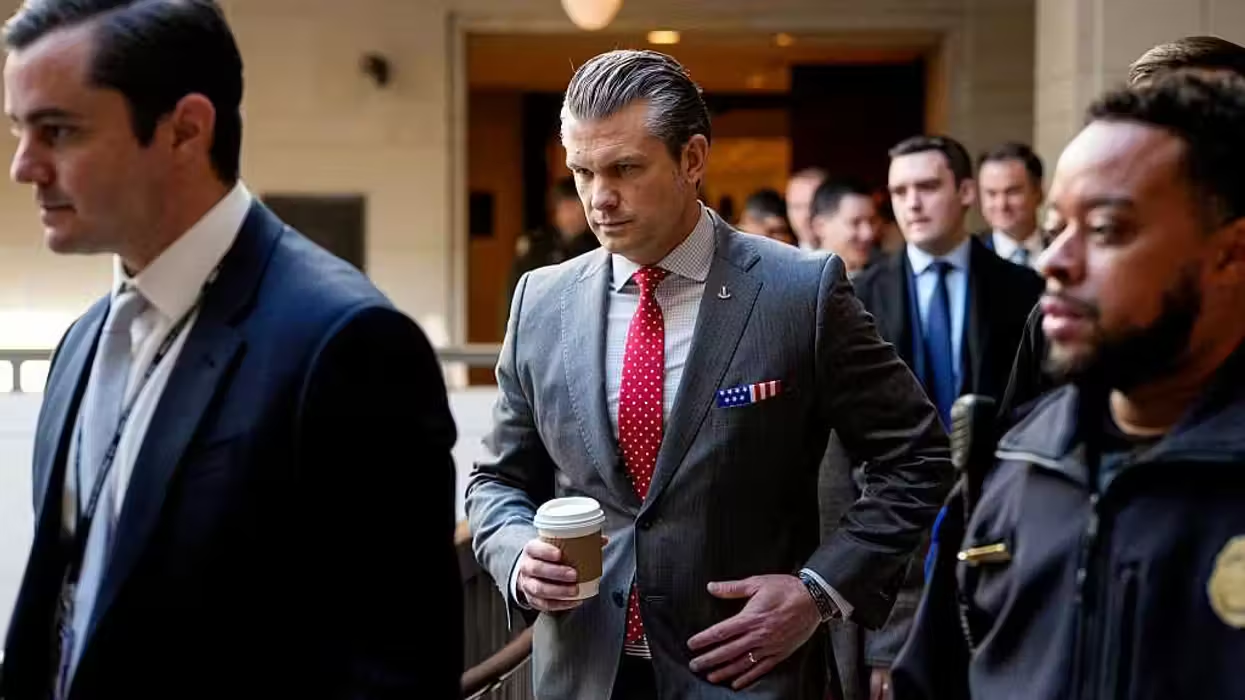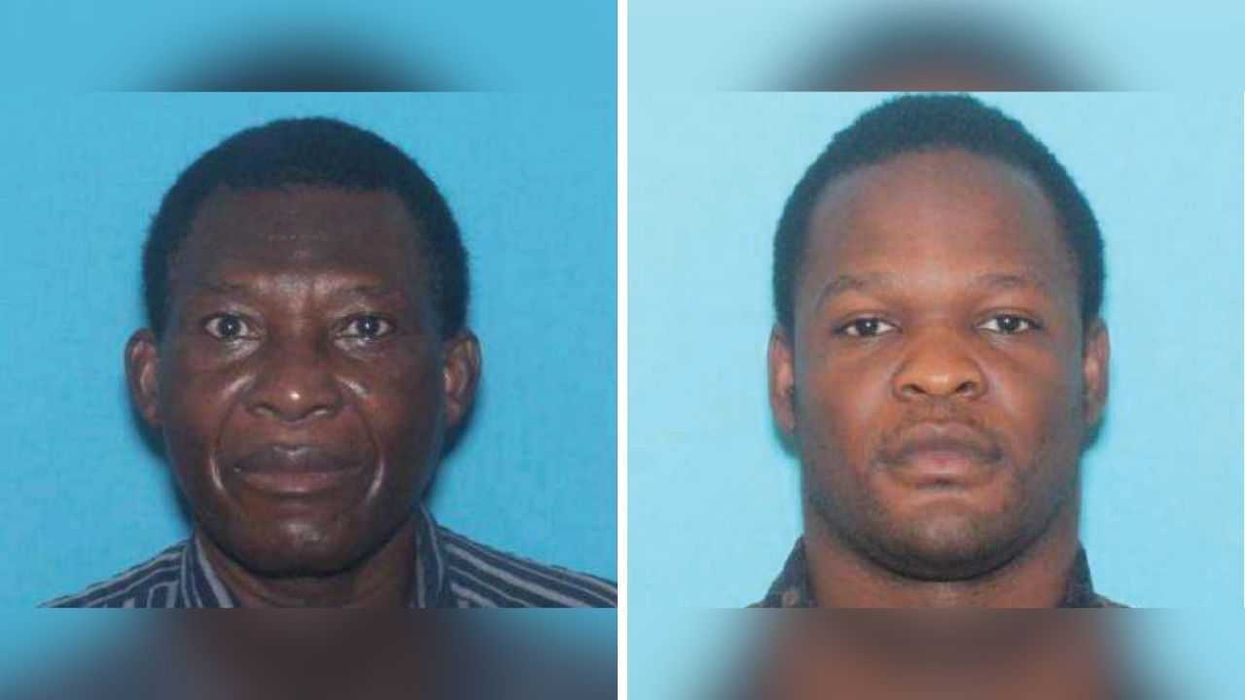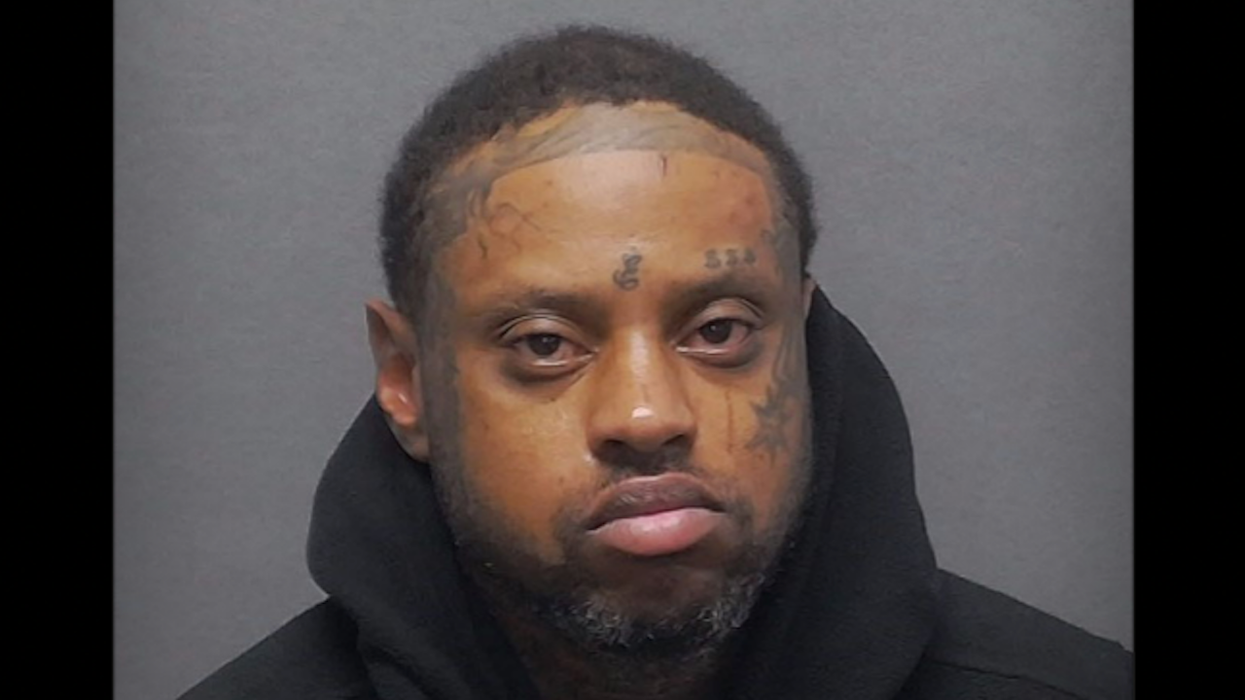Are you afraid that the government is plotting to confiscate your firearms?
Do you believe the economy is about to collapse and the government will soon declare martial law?
Do you display an unusual number of political and/or ideological bumper stickers on your car?
If you answered yes to any of the above questions, you may be an anti-government extremist (a.k.a. domestic terrorist) in the eyes of the police.
As such, you are now viewed as a greater threat to America than Islamic State or Al Qaeda.
Let that sink in a moment.
 (AP Photo/Jacquelyn Martin)
(AP Photo/Jacquelyn Martin)
If you believe in and exercise your rights under the Constitution (namely, your right to speak freely, worship freely, associate with like-minded individuals who share your political views, criticize the government, own a weapon, demand a warrant before being questioned or searched, or any other activity viewed as potentially anti-government, racist, bigoted, anarchic or sovereign), you have just been promoted to the top of the government’s terrorism watch list.
I assure you I’m not making this stuff up.
Police agencies now believe the “main terrorist threat in the United States is not from violent Muslim extremists, but from right-wing extremists.”
So what is the government doing about these so-called terrorists?
The government is going to war.
Again.
Only this time, it has declared war against so-called American “extremists.”
Under the guise of fighting violent extremism “in all of its forms and manifestations” in cities and communities across the world, the Obama administration has agreed to partner with the United Nations to take part in its Strong Cities Network program.
Working with the U.N., the federal government will train local police agencies across America in how to identify, fight and prevent extremism, as well as address intolerance within their communities, using all of the resources at their disposal.
What this program is really all about, however, is community policing on a global scale.
When applied to the Strong Cities Network program, the objective is ostensibly to prevent violent extremism by targeting its source: racism, bigotry, hatred, intolerance, etc.
In other words, police—acting ostensibly as extensions of the United Nations—will identify, monitor and deter individuals who exhibit, express or engage in anything that could be construed as extremist. If you want a foretaste of how “extreme” things could get in the U.S.: new anti-terrorism measures in the U.K. require that extremists be treated like pedophiles and banned from working with youngsters and vulnerable people.
The government’s war on extremists, of which the Strong Cities program is a part, is being sold to Americans in much the same way that the USA Patriot Act was sold to Americans: as a means of combatting terrorists who seek to destroy America.
For instance, making the case for the government’s war on domestic extremism, the Obama administration has suggested that it may require greater legal powers to combat violent attacks by lone wolves (such as “people motivated by racial and religious hatred and anti-government views” who “communicate their hatred over the Internet and through social media”).
Enter the government’s newest employee: a domestic terrorism czar.
However, as we now know, the USA Patriot Act was used as a front to advance the surveillance state, allowing the government to establish a far-reaching domestic spying program that has turned every American citizen into a criminal suspect.
Similarly, the concern with the government’s anti-extremism program is that it will, in many cases, be utilized to render otherwise lawful, nonviolent activities as potentially extremist.
Keep in mind that the government agencies involved in ferreting out American “extremists” will carry out their objectives—to identify and deter potential extremists—in concert with fusion centers (of which there are 78 nationwide, with partners in the private sector and globally), data collection agencies, behavioral scientists, corporations, social media, and community organizers and by relying on cutting-edge technology for surveillance, facial recognition, predictive policing, biometrics, and behavioral epigenetics (in which life experiences alter one’s genetic makeup).
This is pre-crime on an ideological scale and it’s been a long time coming.
For example, in 2009, the Department of Homeland Security released two reports, one on “Rightwing Extremism,” which broadly defines rightwing extremists as individuals and groups “that are mainly antigovernment, rejecting federal authority in favor of state or local authority, or rejecting government authority entirely,” and one on “Leftwing Extremism,” which labeled environmental and animal rights activist groups as extremists.
Incredibly, both reports use the words terrorist and extremist interchangeably.
That same year, the DHS launched Operation Vigilant Eagle, which calls for surveillance of military veterans returning from Iraq and Afghanistan, characterizing them as extremists and potential domestic terrorist threats because they may be “disgruntled, disillusioned or suffering from the psychological effects of war.”
These reports indicate that for the government, anyone seen as opposing the government—whether they’re Left, Right or somewhere in between—can be labeled an extremist.
Fast forward a few years, and you have the National Defense Authorization Act (NDAA), which President Obama has continually re-upped, that allows the military to take you out of your home, lock you up with no access to friends, family or the courts if you’re seen as an extremist.
Now connect the dots, from the 2009 Extremism reports to the NDAA and the United Nation’s Strong Cities Network with its globalized police forces, the National Security Agency’s far-reaching surveillance networks, and fusion centers that collect and share surveillance data between local, state and federal police agencies
Add in tens of thousands of armed, surveillance drones that will soon blanket American skies, facial recognition technology that will identify and track you wherever you go and whatever you do. And then to complete the circle, toss in the real-time crime centers being deployed in cities across the country, which will be attempting to “predict” crimes and identify criminals before they happen based on widespread surveillance, complex mathematical algorithms and prognostication programs.
Hopefully you’re getting the picture, which is how easy it is for the government to identify, label and target individuals as “extremist.”
We’re living in a scary world.
Unless we can put the brakes on this dramatic expansion and globalization of the government’s powers, we’re not going to recognize this country 20 years from now.
Frankly, as I make clear in my book "Battlefield America: The War on the American People," the landscape has already shifted dramatically from what it was like 10 or 20 years ago. It’s taken less than a generation for our freedoms to be eroded and the police state structure to be erected, expanded and entrenched.
If there is to be any hope of freeing ourselves, it rests—as it always has—at the local level, with Martin Luther King Jr.’s tactics of “militant nonviolent resistance” and civil disobedience.
Mind you, King was considered anti-government and extremist in his day.
As King noted in his “Letter from Birmingham City Jail”:
"Was not Jesus an extremist in love—'Love your enemies, bless them that curse you, pray for them that despitefully use you.' Was not Abraham Lincoln an extremist—'This nation cannot survive half slave and half free.' Was not Thomas Jefferson an extremist—'We hold these truths to be self-evident, that all men are created equal.' So the question is not whether we will be extremist but what kind of extremist will we be. Will we be extremists for hate or will we be extremists for love?"
So how do you not only push back against the police state’s bureaucracy, corruption and cruelty but also launch a counterrevolution aimed at reclaiming control over the government using nonviolent means?
Take a cue from King.
–
TheBlaze contributor channel supports an open discourse on a range of views. The opinions expressed in this channel are solely those of each individual author.


 (AP Photo/Jacquelyn Martin)
(AP Photo/Jacquelyn Martin)






